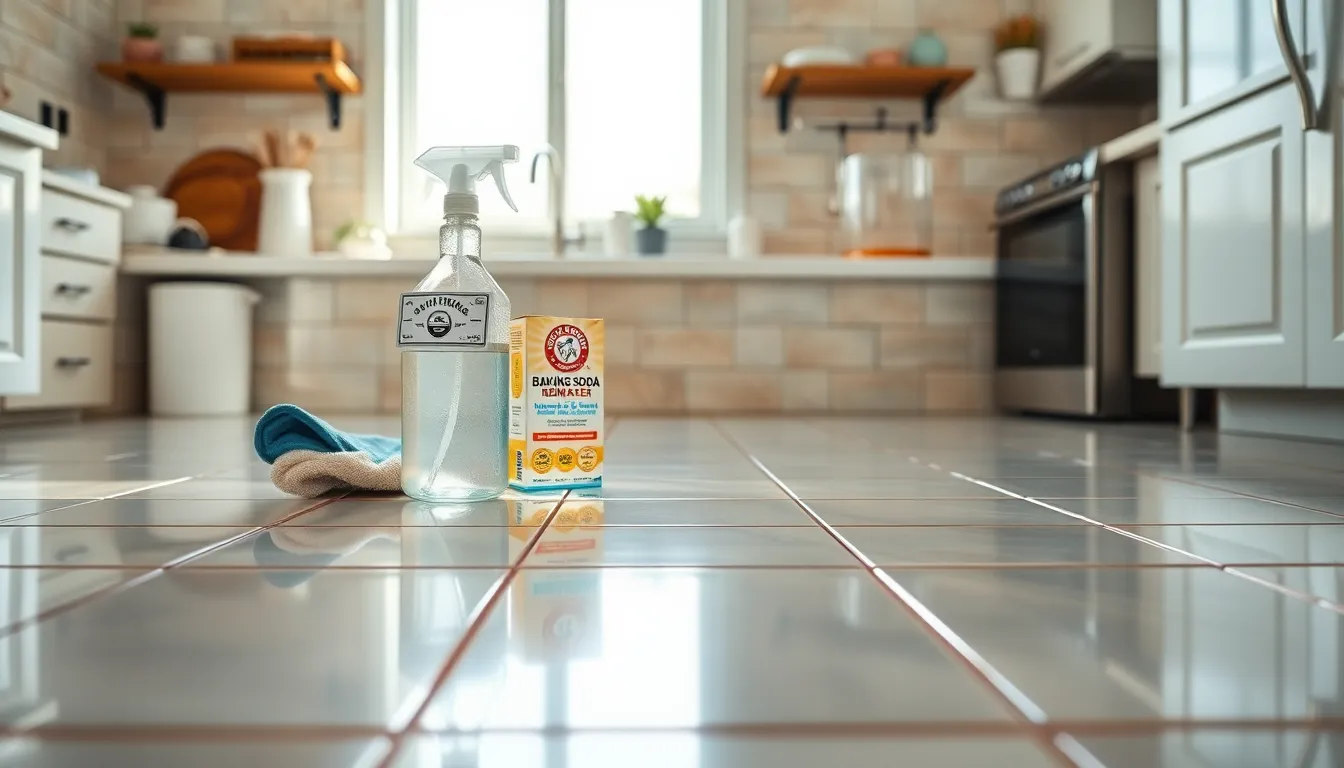Welcoming a newborn into the world is like stepping into a whirlwind of joy, sleepless nights, and an avalanche of tiny socks. New parents often find themselves navigating a maze of advice, from diapering techniques to the best lullabies. It’s both exhilarating and a tad overwhelming, but don’t worry—help is here!
Table of Contents
ToggleEssential Newborn Care Tips
Monitoring a newborn’s feeding schedule is crucial. Newborns typically feed every two to three hours, whether breastfeeding or formula feeding. Parents should look for signs of hunger like rooting or sucking on their hands.
Maintaining a safe sleep environment is essential for reducing the risk of Sudden Infant Death Syndrome (SIDS). The baby should sleep on their back in a crib that meets safety standards, free of pillows, plush toys, and blankets.
Bathing a newborn requires caution. It’s best to give sponge baths until the umbilical cord stump falls off, typically within the first few weeks. Use mild soap and maintain a warm room to keep the baby comfortable.
Diaper changing is a frequent task. Parents should change diapers every two to three hours or as soon as they notice soiling. Proper cleaning using wipes or warm water can prevent diaper rash and irritation.
Regular pediatrician visits are important for tracking growth and development. Check-ups typically occur within the first week, one month, and two months. Vaccinations and screenings during these visits help ensure the newborn’s health.
Establishing a routine, though not strictly necessary, can provide structure. Consistent feeding and sleeping times help the baby adapt and can also ease parental anxiety.
Recognizing developmental milestones is vital. Monitoring key milestones like gazing or responding to sounds can signal healthy growth. If any concerns arise, consulting with a pediatrician is advisable.
Finally, staying informed while trusting instincts proves beneficial for new parents. Engaging with reliable resources and seeking advice helps navigate the early days more confidently.
Creating a Safe Sleep Environment

Creating a safe sleep environment is essential for newborns, helping to reduce the risk of sudden infant death syndrome (SIDS). Specific practices and safe sleeping surfaces play a vital role in ensuring a secure rest for infants.
Safe Sleep Practices
Place babies on their backs for every sleep time, including naps and overnight. Use a firm mattress free of soft bedding, pillows, or toys, as these items can increase the risk of suffocation. Keep the crib in the same room as parents for the first six months, ensuring a close watch. Maintain a comfortable temperature, avoiding overheating with appropriate clothing. Encourage breastfeeding when possible, as it significantly lowers SIDS risk.
Choosing the Right Crib
Select a crib that meets current safety standards, ensuring it has no drop sides and proper slat spacing. New cribs must adhere to the Consumer Product Safety Commission guidelines. Choose a mattress designed for infants, ensuring it fits snugly against the crib’s sides. Avoid secondhand cribs without verified safety compliance, as they may contain outdated features. Prioritize cribs that are easy to assemble and maintain for long-lasting use.
Feeding Your Newborn
Feeding a newborn requires attention and care. Both breastfeeding and formula feeding play crucial roles in ensuring infants receive the necessary nutrients.
Breastfeeding Tips
Breastfeeding creates a strong bond between mother and baby. Start by getting comfortable in a quiet space to promote relaxation. Position the baby properly to encourage a good latch, ensuring both comfort and efficiency. Aim to breastfeed every 2 to 3 hours; this frequency helps establish a routine and maintains milk supply. Monitor baby’s cues, such as rooting or sucking on hands, for feeding readiness. Stay hydrated and eat a balanced diet, which supports milk production. Finally, consult a lactation specialist if difficulties arise, as they can provide personalized guidance.
Formula Feeding Guidelines
Formula feeding offers an effective alternative to breastfeeding. Select an iron-fortified formula to meet nutritional needs. Always follow preparation instructions closely, including proper water and formula ratios. Feed every 3 to 4 hours, adjusting for the baby’s hunger cues. Burp the baby after every 1 to 2 ounces to minimize discomfort. Store unused formula in a safe, cool place and discard any formula left out for longer than one hour. Follow all safety guidelines to ensure the baby’s health and well-being.
Bathing and Hygiene Practices
Bathing and maintaining hygiene for a newborn requires specific techniques to ensure safety and comfort. Parents should wait until the umbilical cord stump falls off, typically 1 to 2 weeks after birth, before submerging the baby in water. Sponge baths with a soft, warm cloth can be effective in keeping the baby clean during this time. Use unscented baby soap for gentle cleansing. Pay attention to areas that accumulate moisture, like the folds of skin. Always support the baby’s head and neck while giving baths to ensure safety.
Bathing Techniques
Bathing requires careful handling, starting with gathering all supplies beforehand. A soft washcloth, baby soap, and a towel should be ready. Fill the tub with just a few inches of warm water, testing the temperature to avoid burns. Lower the baby into the bath slowly, ensuring the water covers only the lower body initially. Clean the baby’s face and move downward, making sure not to get water in their eyes or ears. Rinse thoroughly and gently wrap the baby in a towel after the bath to prevent chills. Performing bath time in a calm environment can help create a positive experience.
Diapering Essentials
Diaper changes are frequent, happening every 2 to 3 hours or as needed. Parents must use a clean changing area, where all supplies are at hand to ensure safety and convenience. Open the diaper, fold down the front, and clean the baby with wipes or a damp cloth. For girls, wiping front to back is vital to prevent infections. Place the clean diaper under the baby, pull up the front, and fasten it snugly without being too tight. Dispose of the used diaper properly. Regularly changing diapers helps prevent rashes and keeps the baby’s skin healthy.
Health and Wellness
Maintaining a newborn’s health and wellness is crucial for their development and well-being. Parents play a key role in ensuring timely medical attention and recognizing potential health issues.
Regular Check-ups
Regular pediatrician visits are essential for monitoring a newborn’s growth. During these appointments, healthcare providers assess weight, height, and developmental milestones. Parents receive important vaccinations and guidance tailored to their baby’s needs. Scheduling visits at 1, 2, 4, 6, 9, and 12 months provides a solid foundation for ongoing health management. Pediatricians also address any questions or concerns, offering valuable support to help parents navigate early childhood.
Recognizing Common Illnesses
Recognizing common illnesses in newborns can prevent complications. Parents should watch for signs of fever, lethargy, or difficulty feeding. Symptoms like a persistent cough, rash, or unusual crying warrant a consultation with a pediatrician. Understanding these indicators ensures timely medical attention. Parents can also familiarize themselves with common conditions such as colic, reflux, and diaper rashes to manage them effectively. Staying informed about standard illnesses fosters confidence in addressing health concerns promptly.
Bonding with Your Newborn
Bonding with a newborn involves emotional connection and physical closeness. Early interactions create lasting relationships between parents and their babies.
Importance of Skin-to-Skin Contact
Skin-to-skin contact boosts bonding. Holding the baby against the parent’s bare chest helps regulate the baby’s body temperature and heart rate. This practice releases oxytocin, promoting feelings of love and attachment. Research shows that skin-to-skin contact supports breastfeeding rates and reduces newborn stress. Engaging in this practice for at least 30 minutes after birth sets the tone for nurturing interactions later.
Engaging with Your Baby
Engaging with a newborn supports developmental growth. Talking, singing, or reading aloud stimulates the baby’s senses, encouraging language acquisition. Eye contact deepens connections, as it helps the baby recognize the parent’s face. Responding to coos or gurgles fosters communication skills. Regularly incorporating these interactions into daily routines nurtures a strong bond and promotes emotional security.
Newborn care can feel overwhelming but it’s also a rewarding journey for new parents. By following the essential tips outlined in the article parents can create a nurturing environment that supports their baby’s growth and well-being. Staying informed about feeding practices safe sleep guidelines and developmental milestones empowers parents to make confident decisions.
Establishing routines and recognizing health concerns play a crucial role in ensuring a happy and healthy start for both baby and parents. With patience and love every moment spent caring for a newborn contributes to building a strong bond that lasts a lifetime. Embracing this journey with an open heart and mind will lead to cherished memories and a fulfilling experience.



